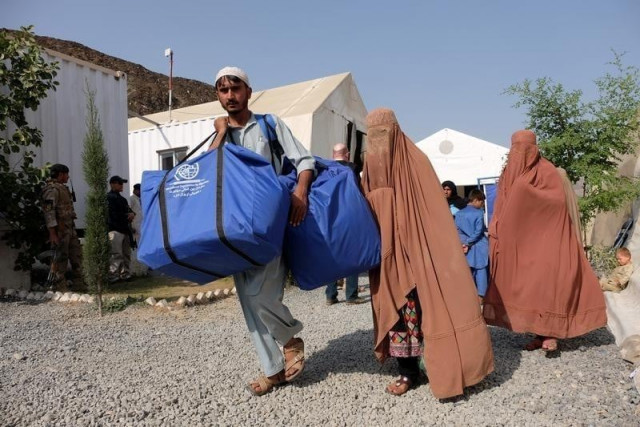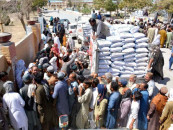No influx of refugees seen via Torkham
43 refugee camps are already functional in K-P

Despite the initial assessments and fears that the Afghan situation would bring a large number of refugees to Pakistan once again, the Commissionerate for Afghan Refugees (CARs) Khyber Pakhtunkhwa claimed that no such influx has been witnessed so far in the province where 43 camps are already operational for the past four decades.
Officials claimed that following the fall of Kabul, no large scale flow of refugees had been recorded via the Torkham border and only Afghan nationals with legal travelling documents were crossing into Pakistan. Torkham is the easiest way to reach Pakistan.
The officials informed that 43 Afghan refugee camps were currently being managed by CAR in K-P including Shamshatoo and Khazana in Peshawar, Panian in Haripur, Barakai in Swabi, Gamkol in Kohat, Icharian in Manshera and Baghicha in Mardan districts where all necessary facilities including electricity, schools, healthcare services, clean drinking water and sanitation have been made available for refugees. CAR was established by Pakistan in 1979 to facilitate millions of afghan refugees after they arrived in K-P.
The federal government had given a clear mandate to CAR to ensure management, administration and coordination of all official refugee camps in K-P as back then over 200 refugee camps were set up in the province.
Read Taliban stop thousands of Afghans at border crossing near Pakistan
Professor Dr Khursheed Ahmed of International Relations Department, University of Peshawar told APP that Pakistan was hoisting approximately four million Afghan refugees for the last four decades despite meager financial assistance by the international community and can’t afford more load.
He said following the withdrawal of aid, and above all freezing of bank accounts, the Afghan economy was in tatters with millions of Afghans including children and mothers were facing hunger, starvation and malnutrition.
“The Afghan economy is heavily dependent on foreign aid and assistance from donor countries that received a severe jolt following US withdrawal from Afghanistan. Over 60 percent of Afghan’s economy was fed through foreign aid and its stoppage has added to the miseries of Afghans,” he maintained.
Read Afghans fear for jobs and money after Taliban takeover
The CAR official said that his organization was in liaison with United Nations High Commissioner for Refugees (UNHCR) and K-P Government to effectively cope with possible refugees’ influx in K-P in the coming days as services in the existing 43 refugees camps had been improved to accommodate them.
He added that in the case of large scale refugees arrival efforts would be made to establish a refugee camp within 10-15 kilometer of the Torkham border.
“In 1979 Peshawar was a small city of around 1.5 million people. There were villages in the district and wastelands where camps were established outside the city but now taking these refugees to Peshawar is not possible so we would try to establish a camp in Khyber tribal district near the camp,” said another official, adding that taking more refugees would be problematic for the Pakistani economy.
Published in The Express Tribune, October 13th, 2021.



















COMMENTS
Comments are moderated and generally will be posted if they are on-topic and not abusive.
For more information, please see our Comments FAQ